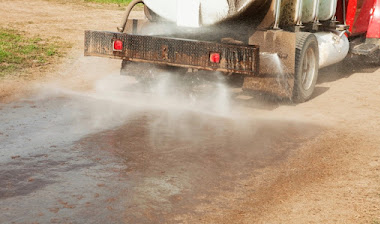Truck Driver Blows the Whistle on Gas Industry
July 19, 2012Court Throws Out PA Statewide Zoning for Marcellus Shale Drilling
July 27, 2012By Kristen Meriwether, Epoch Times, July 19, 2012
NEW YORK—New research suggests the health of newborn babies is adversely affected in areas close to sites undertaking natural gas extraction by way of hydraulic fracturing, or fracking; the method of obtaining natural gas by blasting shale with a solution of water and chemicals.
“A mother’s exposure to fracking before birth increases the overall prevalence of low birth weight by 25 percent,” said Elaine L. Hill, Cornell University doctoral candidate and author of the working paper, “Unconventional Natural Gas Development and Infant Health: Evidence from Pennsylvania.” Hill also found a 17 percent increase in “small for gestational age” births, and reduced health scores.
She spoke at a fracking forum hosted by Sen. Tony Avella in New York City Wednesday.
Hill’s paper looked at birth measures, including birth weight and premature birth, for those born in Pennsylvania starting in 2003, before fracking began. The study used data through 2010 and focused on those living up to 1.5 miles from gas development sites. Pennsylvania increased its unconventional natural gas wells from 20 in 2007 to 4,272 by the end of 2010.
Fracking in New York
New York currently has a moratorium on fracking, but the New York Department of Environmental Conservation (DEC) is reviewing the nearly 80,000 comments received from public hearing sessions held in 2009 and 2011 regarding the draft Supplement Generic Environmental Impact Statement (SGEIS) that will determine if New York will move forward and review permits for horizontal fracking.
The SGEIS will have to pass the state Legislature before heading to Gov. Andrew Cuomo’s desk for approval. The DEC decision is expected by the end of this year.
Hill’s working paper will not be published until it passes a peer review—a huge risk for a doctoral student who does not share the same protection as a tenured professor.
“I think the courage she is showing today in coming forward and speaking truth to power should be matched by other acts of courage by members of our own state government,” Sandra Steingraber, distinguished scholar in residence for the department of environmental studies at Ithaca College, said before Hill’s testimony.
Steingraber said she believes Hill’s paper should be peer reviewed, but also feels science is having a tough time keeping up with the rush to get new fracking measures in place.
Hill said it may take up to two years to finish the review process, at which time new fracking regulations will likely already be in place. “My study is robust across multiple specifications and it indicates that our future generation may be seriously harmed. I couldn’’t possibly value my career over their well-being,” Hill said by email on Thursday.
A lifelong resident of New York state, Hill concluded her testimony by speaking from a personal perspective. She mentioned she is engaged to be married and hopes to start her own family soon, however her findings are giving her second thoughts about doing that in New York.
“I fully understand the economic potential for this technology and its importance for the state, but I hope for the sake of my generation and our future children, that New York will do its part to ensure our health and safety by refraining from allowing fracking to begin until the questions raised by the research presented today are answered,” Hill said.
“According to current estimates, a single low birth weight infant costs society, on average, $51,000 during the first year of life,” Hill said, adding that that did not include long-term costs for the child or decrease in parental earnings.
Calling on Cuomo
On Thursday, Sen. Avella followed through by issuing a letter to Cuomo formally requesting a meeting with him, as well as scientists, medical professionals, and environmentalists to discuss fracking and how the DEC and the governor will be making decisions.
“There has been virtually no outreach from either your staff or DEC staff to engage in detailed conversations with these respected members of the medical and scientific communities,” Avella said in his letter, a sentiment echoed by the majority of those that testified Wednesday.
The DEC confirmed that, while they are no longer accepting public comments, they will accept additional reports from academia. It is unclear if Hill’s paper will be reviewed by the DEC prior to regulation changes in New York, as it remains unpublished.
Fracking advocates state Sen. Tom Libous, the Joint Landowners Coalition of New York, Independent Petroleum Association of America, and Vote 4 Energy did not respond by press time to requests for comment.



